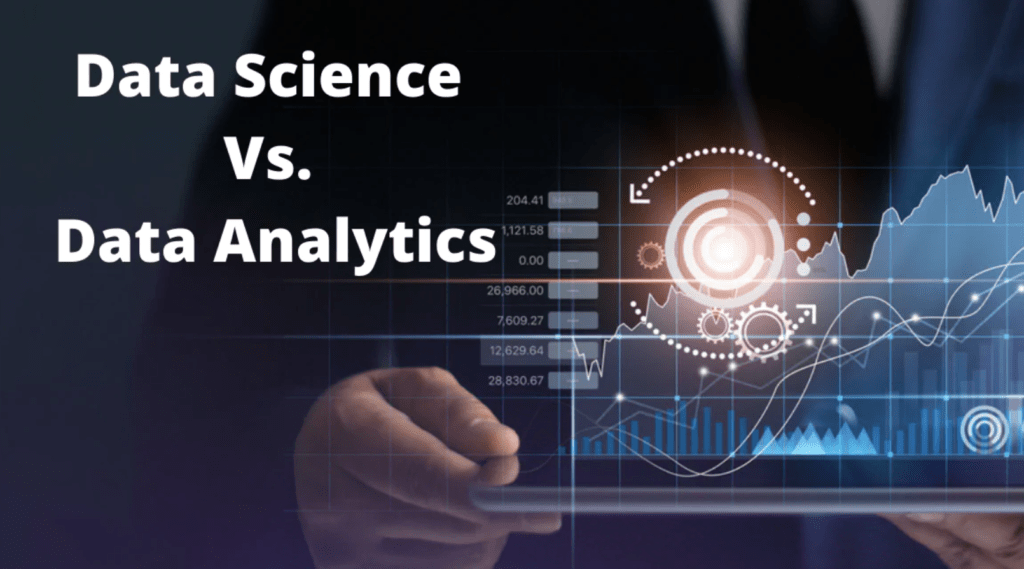Business Intelligence

Why are companies of varied sizes implementing BI systems?
This question often crosses the minds of business leaders, but the answer is quite simple.

The state of the business intelligence market – what did COVID-19 bring?
As with all markets, COVID-19 has had a major impact on business intelligence market.

Microsoft Power BI product family – the market-leading product group
Microsoft Power BI is a business analytics application that makes it easy for anyone to create their own reporting interfaces and dashboards.

Data quality wager
Gordon Hamilton emailed Jim Harris (the author of the original article) with the following to his data quality blog post:

The five key benefits of Microsoft Power BI for data scientists
The importance of the internet and IT in business cannot be disputed. Whatever the sector, a business depends on the web and uses a dozens of software and applications. Businesses need to process huge amounts of data, which requires the right specialised applications. This is why BI and data visualisation solutions are in demand.

Undiscovered goldmine: we still do not utilize our datas efficiently
KPMG has made a research „The Data Imperative” in which they found out, that current data management strategies have to be thought over, so that they can be profitable from previous years’ investments. Due to COVID lockdowns, most of the companies had their focus on digital transformation, and this caused the lack of highlight on data management.

Easy data cleaning and a bit complex missing data handling – making your dataset ready to be analysed
Data cleansing and preprocessing can occupy 40-70% of the workflow. We should start any analysis, modelling, or visualisation by getting to know the data and prepare the dataset for the next steps. Basic steps of data cleansing:

Data50: world’s top startups working with datas
One decade has passed since the idea of big data, and datas are still ones of the most important and fastest growing innovation powers for both bigger companies and new startups. Even from impulse-control (which is the base of business operation) to daily tasks’ automatic processes via AI, datas have become the central element of decision-making, no matter the size of the organization.

Why every business needs a data and analytics strategy
As the world becomes smarter, data is becoming the key to competitive advantage, meaning that a company’s competitiveness is increasingly determined by how well it can harness data, apply analytics and adopt new technologies. According to the International Institute for Analytics, by 2020, companies that use data will achieve a $430 billion productivity advantage over competitors that do not.

Data science vs. data analytics: What are the main differences?
Data science and data analytics are two overlapping and complementary areas within the data department of a modern enterprise. If we want to be a little more specific, data science is concerned with the creation of systems that use large – and often unstructured – datasets to empower machine learning (ML) capabilities and therefore inform predictive and prescriptive analytics and processes. Data analysis, on the other hand, is more concerned with reporting or presenting and visualizing more traditional, descriptive operational data or results that can be used by specialists in other departments within the company.

Misleading data visualizations
Misleading data visualizations refer to the presentation of data in way that distorts or misrepresents the underlying information. This can lead to incorrect conclusions, misunderstandings, and poor decision-making. It is important to be aware of the potential for misleading visuals and to ensure that data is presented accurately and honestly.

What is Data Analysis?
One purpose of data analysis is to extract information from the available data and use it to speed up decision-making. A recent survey by the International Data Corporation (IDC) showed that companies using analytics tools perform on average 2.5 times better than laggards on 6 of the 12 surveyed key business metrics. The study also claimed that companies are increasingly willing to spend resources to improve analytical capabilities.

The Importance of Data Security in Business Intelligence
The use of business intelligence in companies involves handling huge amounts of data. This includes data from business processes, sales data, customer behavior, and other sources. The data is valuable and can be necessary for making strategic decisions for companies.

Data Lake Architecture: How to Prepare a Business for the Challenges of the Data-Driven World
In today’s world, every modern enterprise has a presence in the digital space. Every organization needs to go through various stages of digitalization, from basic financial accounting to advanced analytics, predictive modeling, and developing data-driven digital services.

AutoML – The Engine of Business Intelligence’s Future
AutoML, short for Automated Machine Learning, is a technology gaining increasing attention in the field of business intelligence. The rapid advancement of business intelligence has enabled the widespread application of machine learning algorithms and models for businesses. However, the traditional process of developing machine learning models can often be time-consuming and require expertise, limiting the quick deployment of business applications and attainment of business value.

The Importance of Ethical Business Intelligence in the Technological and Business Environment
Ethical business intelligence is a fundamental and crucial topic in today’s technological and business environment. As the role of data and algorithms continues to increase in the operations of businesses, ethical considerations and responsibility become more prominent. Ethical business intelligence entails making business decisions and practices guided by societal and moral values, as well as a responsibility towards upholding the rights and well-being of individuals.

GAN: Realistic Data Generation in the Data World
Generative Adversarial Networks (GANs), or simply GAN, are deep learning models capable of generating realistic data. The GAN system consists of two fundamental components: a generator and a discriminator. The generator’s task is to produce new data, while the discriminator aims to differentiate between real and generated data.

The convergence of IoT and Business Intelligence: The power of data-driven decisions through real-time analysis and optimization
The IoT (Internet of Things) revolutionizes the operations of businesses by enabling the interconnection of various devices and sensors over the internet. The data generated by IoT has immense potential in the field of Business Intelligence (BI).

